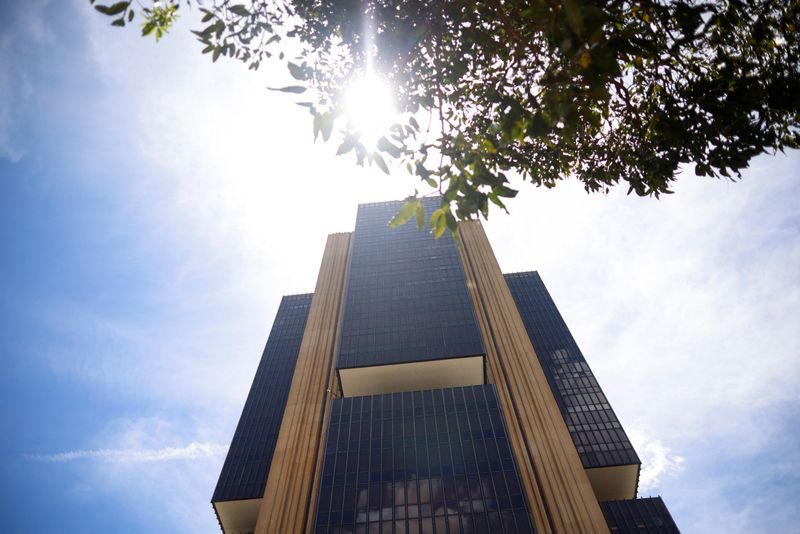BRASILIA (Reuters) -Brazilian financial markets on Thursday showed many traders still betting the central bank will kick off a cycle of interest rate cuts in August, even as some economists ruled it out based on the tone of the bank's latest policy statement.
The central bank held its benchmark interest rate at a six-year high on Wednesday evening and struck a more dovish tone on its next steps, while holding back from a clear signal about the upcoming rate-setting meeting in early August.
Brazil's currency firmed slightly against the U.S. dollar in Thursday mid-evening trading, while its benchmark stock index slid about 1.7%.
Short-term interest rate futures edged higher, but they still reflect most bets leaning toward a first rate cut of 25 basis points in August.
Some economists say that now seems out of the question.
"The committee reinforced the message that it needs 2024 and 2025 inflation expectations to continue to move down in order to start cutting rates. In our base case, we rule out August as the starting point of rate cuts," wrote UBS economists in a note to clients, forecasting the first monetary easing in September.
In its policy statement, the central bank's rate-setting committee removed hawkish signals such as a reference to a possible rate increase, but called for "patience and serenity" and said upcoming data will be key to its August decision.
That approach drew fresh criticism from President Luiz Inacio Lula da Silva, who called it "irrational" for the central bank to keep rates so high while inflation has fallen sharply.
Lula vented his frustration while traveling in Italy, suggesting central bank chief Roberto Campos Neto, an appointee of former President Jair Bolsonaro, has been a menace to the Brazilian economy
Campos Neto, who has consistently argued that central bank decisions are based on economic principles and not politics, is expected to remain in office until 2024 under the central bank's formal autonomy status.
Speaking to reporters from Italy, Finance Minister Fernando Haddad questioned the bank's stance in linking its future decision to the decline in inflation expectations measured by market surveys, considering that these surveys have consistently shown projections "inaccurate for six months."

Haddad expressed concern over a "concerning mismatch" between the central bank's approach and the current situation in Brazil, pointing out an improved environment for an interest rate reduction with lower future rates and a stronger currency.
"We are inviting trouble with this interest rate," he said. "It is inviting future inflation and increased tax burden."